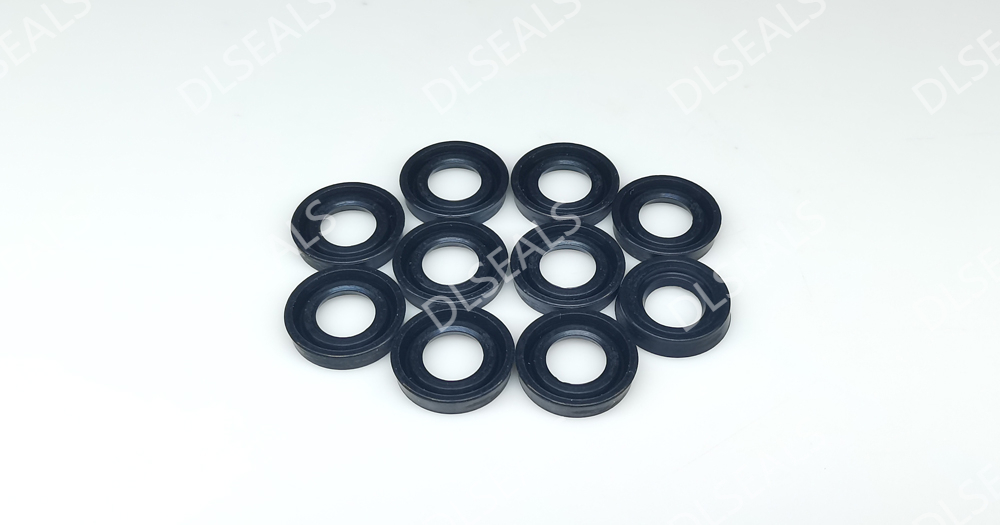
Rubber seals are an indispensable key component in the industrial field and are widely used in various mechanical equipment and systems. Their main function is to prevent the leakage of fluids or gases and ensure the normal operation and stable performance of the equipment. The performance of rubber seals depends largely on the selected rubber material, which is also an important aspect in the design and application of rubber seals. This article will explore the importance, material selection, application and maintenance recommendations of rubber seals in depth.
1. The importance of rubber seals
Rubber seals play a vital role in mechanical equipment. First, they can effectively prevent the leakage of liquids, gases or other media, thereby maintaining the pressure and flow stability of the system. Secondly, rubber seals can also reduce friction and wear, protect the key components of the equipment, and extend the service life of the equipment. Finally, rubber seals are also of great significance to improving the operating efficiency and performance of the equipment.
2. Material selection of rubber seals
Rubber seals are made of a wide variety of materials, including natural rubber, styrene-butadiene rubber, nitrile-butadiene rubber, chloroprene rubber, silicone rubber, fluororubber, etc. The following table lists the main characteristics and application areas of these common materials:
Material Characteristics Application Areas
Natural rubber (NR) Good elasticity and wear resistance, poor aging resistance General mechanical equipment seals
Styrene butadiene rubber (SBR) Low cost, good oil resistance, poor wear resistance General oil seals and water seals
Nitrile butadiene rubber (NBR) Good oil resistance and wear resistance, poor low temperature resistance Petrochemical, automotive industry
Chloroprene rubber (CR) Good oil resistance, chemical resistance and weather resistance Chemical, automotive, construction industry
Silicone rubber (SI) High temperature resistance, aging resistance, oil resistance, easy to vulcanize Electronics, food processing industry
Fluororubber (FKM) Excellent oil resistance, chemical resistance and high temperature resistance Chemical, aerospace and other high-demand industries
III. Application areas of rubber seals
The application areas of rubber seals are very wide, covering almost all industrial equipment and systems that require sealing. For example, in the automotive industry, rubber seals are used to seal key parts such as engines, gearboxes, and brake systems; in the petrochemical industry, they are used to seal equipment such as pipes, valves, and pumps; in addition, in the fields of aerospace, electricity, metallurgy, etc., rubber seals also play an important role.
IV. Recommendations for maintenance and replacement of rubber seals
Regular inspection: It is recommended to inspect rubber seals regularly to observe whether they are aging, worn, or deformed. Once a problem is found, it should be dealt with in a timely manner.
Correct installation and replacement: When installing or replacing rubber seals, the manufacturer’s instructions should be followed to ensure correct installation and avoid damage to the seals. At the same time, appropriate tools and materials should be used to ensure installation quality.
Keep clean and dry: It is essential to keep rubber seals and their surroundings clean and dry. Contaminants and moisture may damage the seals, affecting their sealing effect and service life.
Choose the right seal material: Choose the right rubber material according to the application environment and medium characteristics. Different rubber materials have different properties such as oil resistance, high temperature resistance, and corrosion resistance, so they should be selected according to actual needs.
5. Summary
As a key component in industrial sealing, the performance and service life of rubber seals directly affect the stability and reliability of the entire equipment and system. Therefore, when selecting, installing and maintaining rubber seals, their importance should be fully considered and corresponding measures should be taken to ensure their normal operation. By reasonably selecting and applying rubber seals, we can improve the operating efficiency of equipment, reduce maintenance costs and ensure the safety and stability of industrial production.
Post time: Aug-31-2024
